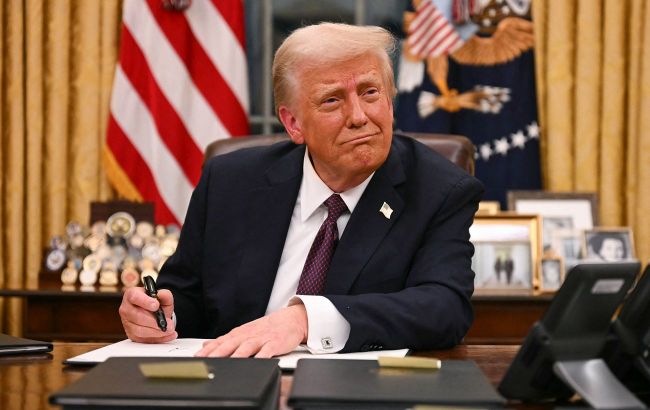Trump signs controversial 'mega bill' on taxes and spending
 Donald Trump, President of the US (photo: Getty Images)
Donald Trump, President of the US (photo: Getty Images)
US President Donald Trump has signed a tax and spending bill. The document includes a number of priorities that the politician promoted during his election campaign, although experts have criticized them, according to the White House website and Bloomberg.
The President signed the bill during a ceremony at the White House on July 4, in celebration of US Independence Day.
The $3.4 trillion budget bill includes the extension of tax breaks, temporary new tax relief for tipped workers, and funding for measures to combat illegal immigration.
“It’s really promises made, promises kept,” Trump said before signing the document at an open-air ceremony, which was preceded by a flyover of US Air Force F-35 fighter jets.
He also called the bill the greatest victory to date.
Questionable victory
Bloomberg believes that the bill marks a major political victory for the president, whose second term so far has been defined mostly by executive rather than legislative initiatives.
The law strengthens Trump's influence over the Republican Party, whose leaders on Capitol Hill ensured the bill’s passage through both the House of Representatives and the Senate this week.
To meet the self-imposed July 4 deadline, Trump personally made phone calls and invited certain lawmakers to the White House, applying pressure on key undecided members of Congress.
Republican leaders in Congress managed to overcome narrow vote margins, unified Democratic opposition, and objections from fiscal conservatives and moderates to pass the bill in time for the Independence Day celebrations.
Long-term consequences
However, as Bloomberg notes, this legislative success comes with political risks for both the president and the Republican Party, the consequences of which may be felt for years to come.
The budget package includes significant cuts in funding and new administrative restrictions on food assistance and healthcare programs, which serve as a social safety net for both working and unemployed Americans.
According to estimates by the independent Congressional Budget Office, these changes will result in approximately 11.8 million Americans losing their Medicaid health insurance. Some experts warn that reduced payments to hospitals could lead to the closure of medical facilities in rural areas.
Moreover, these cuts have led to a decline in public support for Trump’s plan — according to recent polls, it is unpopular among the population.
Some Republican senators are warning that the party may face an electoral backlash in the upcoming elections. Democrats have already vowed to use this bill as an argument against Republicans in the campaign leading up to the midterm elections.
Trump and his supporters have described the bill as a catalyst for economic revival, dismissing impartial forecasts that predict the package will lead to an increase in the national debt.
“Our country is going to be a rocketship economically,” Trump declared, rejecting the poll results that show the law is unpopular.
Complicated bill
The bill went through a difficult approval process and was surrounded by controversy.
The Senate passed the document on July 1 by a single-vote margin, secured by Vice President JD Vance. Trump intensified his communication with Senate Republicans to achieve this outcome.
The House of Representatives considered and approved the bill on July 3, also with a narrow majority.
One of the bill’s most outspoken critics is businessman Elon Musk. In his opinion, the law will provoke a significant increase in the US national debt.

